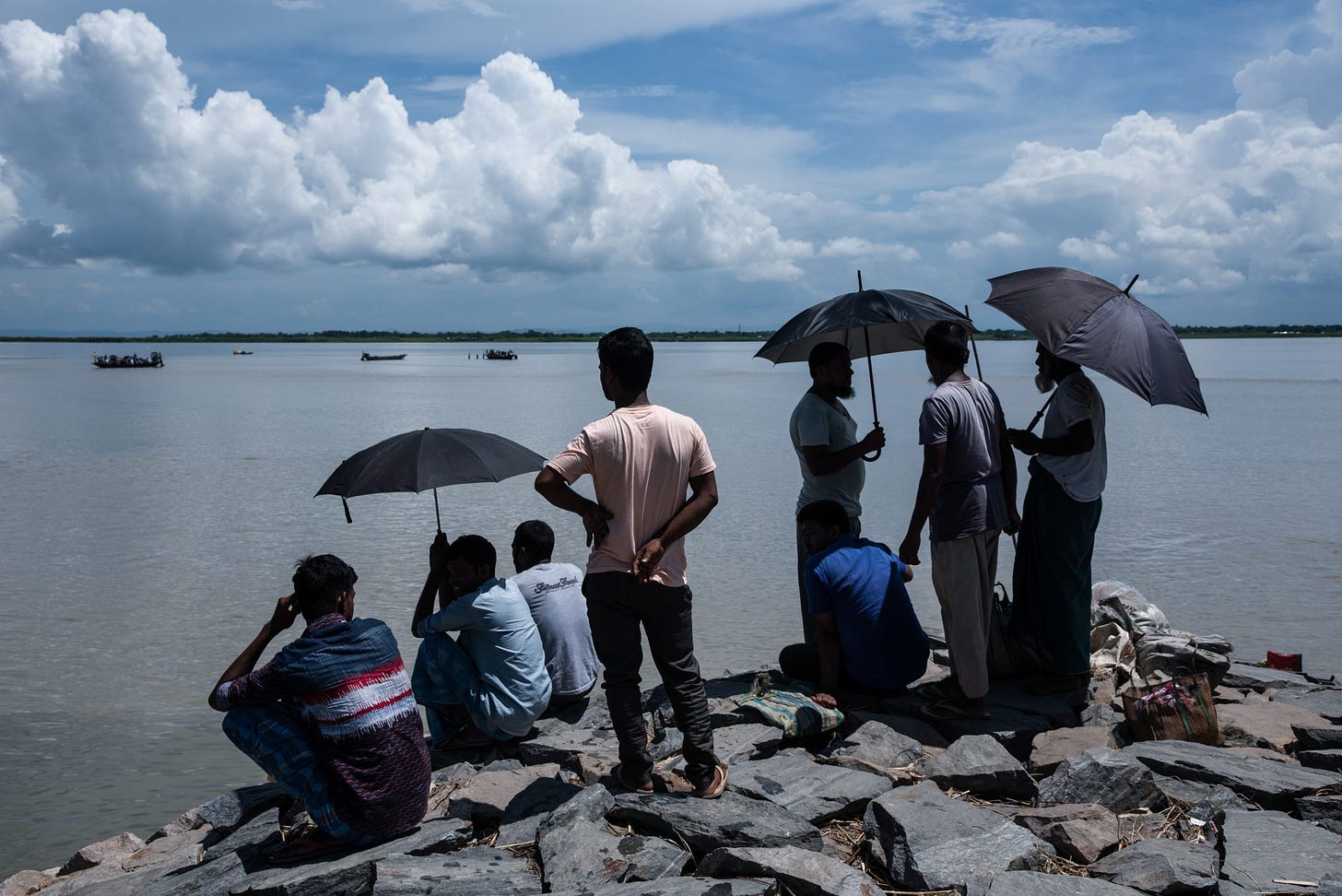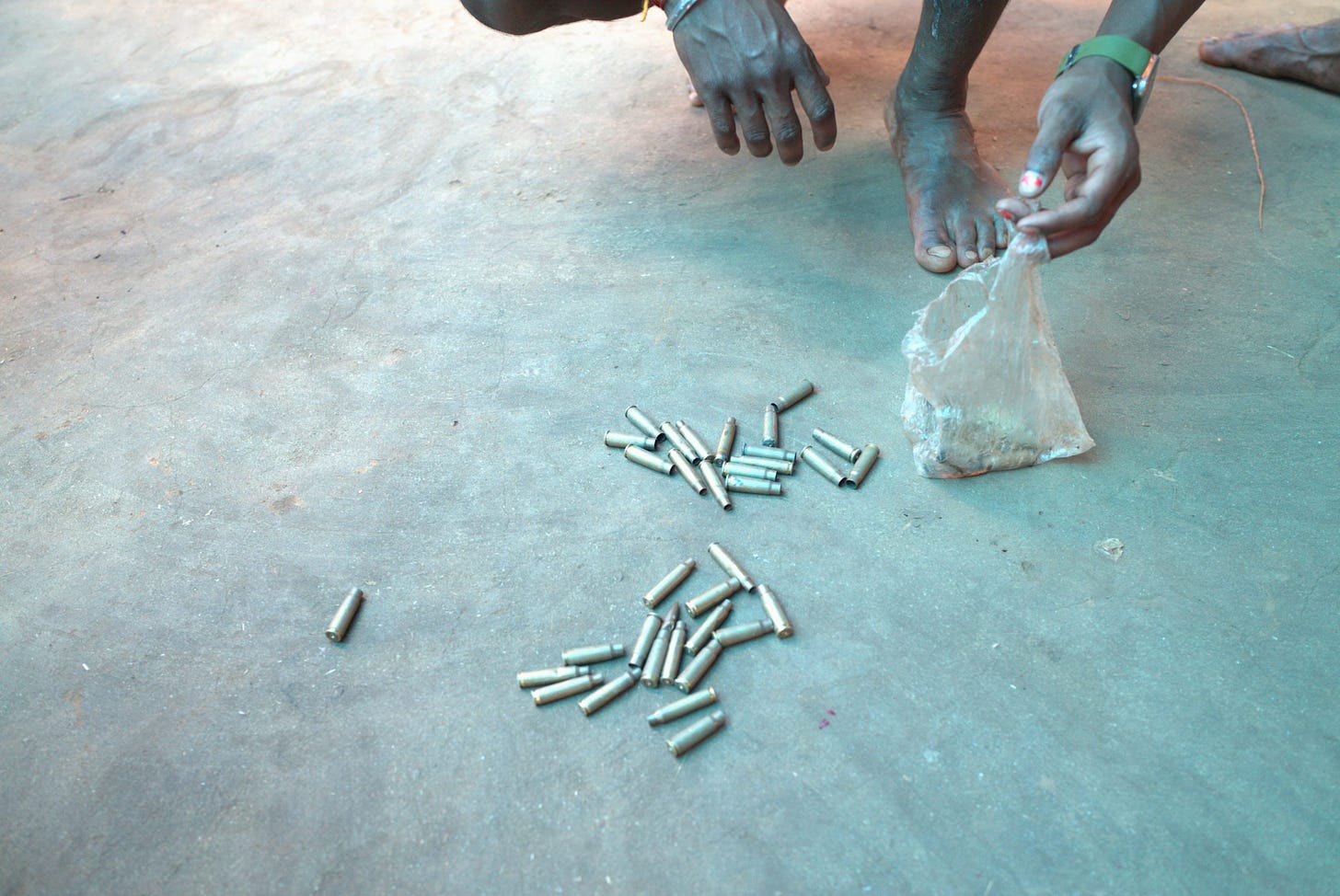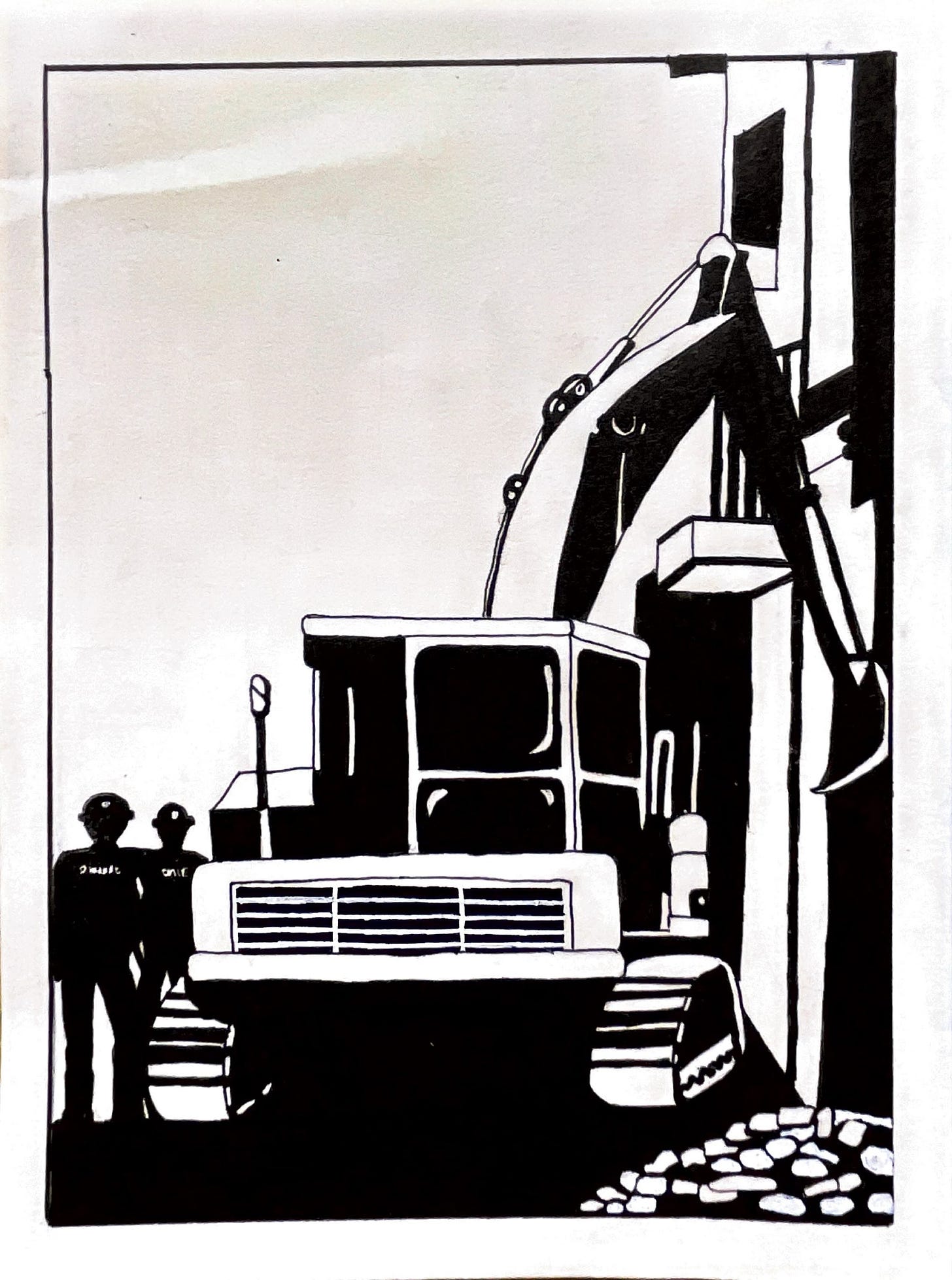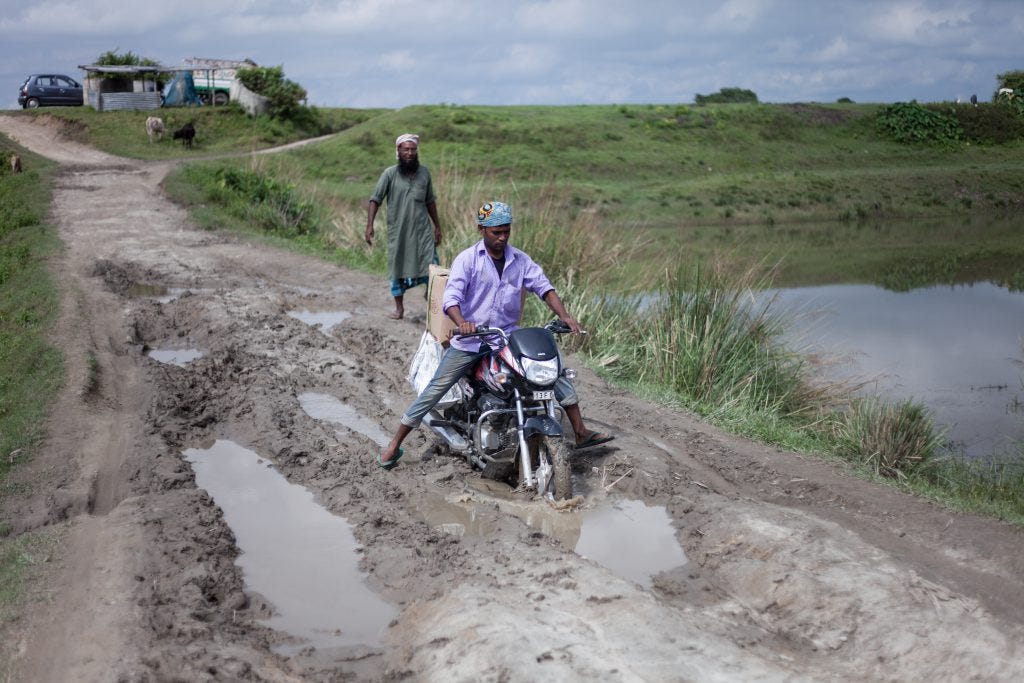The Polis Project Monthly
a round up of original research, reporting and analysis from the past month; a teaser of what is to come; and a quick word from our political editor
Image Credit: Devraj Chaliha for our long form report SPEAKING THE SAME LANGUAGE: HOW ETHNONATIONALISM AND HINDUTVA SEEP INTO THE ADJUDICATION OF CITIZENSHIP IN ASSAM, by P. Baruah.
Hello hello! What a strange feeling it is to be able to write about Indian politics with optimism. I started journalism only after Modi came to power, so a constant descent into authoritarianism and Hindu nationalism is all I have known and studied as a journalist, and what I have come to expect. Of course, Modi and the RSS will still persist with both, and large sections will respond favourably to it, but this immense political setback has been a very welcome reminder that hope is not futile after all. These elections could have been a point of no return in the Hindu Rashtra project, if the 400-paar were to come true. Instead, it has shown that a vision for India rooted in constitutional principles of social justice, which recognises and addresses the country’s religious and caste oppression, still triumphs over a vision rooted in Brahminical Hindutva. And that’s worth celebrating, even with Modi getting a third term.
It is important nonetheless to be vigilant about falling into complacency—to remind ourselves that Kashmir is still occupied and Manipur still in civil war; to just remember that (a silly little joke for the Malayalis) the BJP won its first seat in Kerala, and that Umar Khalid and countless others are still in jail; to not lose sight of the fact that Rahul Gandhi repeatedly made a show of temple visits during his campaign, and that Hindutva politics isn’t the exclusive domain of the BJP. To be measured in our optimism, because the descent can continue.
A lot has been said and analysed about the election results already, and a lot more is still to come, undoubtedly, so following that note of caution, I’ll end it with some numbers that are still worth celebrating:
· 240: The BJP’s total tally this year, down by 63 seats from 2019, including a loss of 29 seats in Uttar Pradesh, 24 seats in Maharashtra, and 7 in West Bengal. The party lost 22 seats reserved for Scheduled Castes and Scheduled Tribes, down from 77 to 55, of the total 131.
· 53: The tally of the NDA allies, which brings the coalition’s total seats to 293. This includes the TDP’s 16 seats, the JD(U)’s 12 seats, the Shiv Sena’s 7 seats, the LJP’s 5 seats, two seats each by the JD(S), the RLD and the JSP, and one each by seven other parties, including the NCP and the LJP.
· 34,329: The margin by which BJP’s Ajay Mishra Teni, whose son is accused of fatally mowing down four protesting farmers in Lakhimpur Kheri in 2021, lost the seat to the Samajwadi Party candidate.
· 42,649: The margin by which Prajwal Revanna was defeated, the first time in 20 years that the JD(S) lost the Hassan seat.
· 54,567: The margin by which the Samajwadi Party’s Awadhesh Prasad, a Dalit candidate in a non-reserved seat, defeated the BJP’s Thakur candidate, Lallu Singh, in Faizabad, the constituency of the Ram Temple.
· 2,47,054: The margin by which Raj Kumar Roat, of the Bharat Adivasi Party, defeated the BJP candidate in Banswara, where Modi made his vitriolic anti-Muslim campaign speech.
· Rs 12,930 crore: The BJP’s treasure chest between 2018-23, including funding from electoral bonds, electoral trusts, and other donations, amounting to approximately 58 percent of all political finance in the six-year period.
· 95%: The percentage of cases against opposition leaders registered by the Central Bureau of Investigation and the Enforcement Directorate since 2014. This includes cases against 23 opposition leaders who subsequently joined the BJP, and faced no action after switching sides.
· 0: The number of seats the BJP won in Manipur, where an ethnic conflict has persisted for over a year with the BJP governments at the state and the centre being unable or unwilling to stop it. Both the Meiteis and Kuki-Zos voted for the Congress, with the party winning 47.59% vote share, and defeating the candidates by the BJP as well as its NDA ally, the Naga People’s Front.
And finally, just one sobering number:
· 24: The number of Muslims in the 18th Lok Sabha, lower than last year, and the second lowest in the Indian parliament’s history—the lowest was 22, in 2014. The INDIA bloc fielded a combined 78 Muslim candidates—lower than the 115 they fielded in 2019—and 21 of them won their seats. The BJP fielded one—he lost.
Amid the election result, it is also important not to forget another number—it has been six years since the first set of Bhima Koregaon arrests. After six years, despite numerous indicators of the politically motivated investigation, the compromised evidence, and the baseless allegations in the case, only seven of the 16 activists, lawyers and academics arrested in the case have been released on bail.
To mark and acknowledge this six-year-long targeting of political dissidents, this month, The Polis Project will publish a series of writings by the BK-16—as they came to be called—and their close family, friends and partners. While their bail conditions prevent them from writing about the case, the series of essays will present something that is equally important to understand—a glimpse into their lives over these past six years, about prison, life in prison and the impact on life outside of prison for their loved ones. We are grateful and eager to be able to publish this series.
Our monthly long form this month will look at a similar subject through a more journalistic lens, by reporting on the treatment of UAPA prisoners in Indian jails. The story reveals all sorts of cruelties, large and small, meted out to UAPA prisoners, and the reporters speak to prisoners, lawyers, activists and jail staff to understand why—is this simply the harsh reality of the Indian prison systems, or is it an exceptional treatment for a category of prisoners?
Apart from that, we’ll be continuing publishing reports from our ongoing Disappearance and Demolitions research projects, so do sign up for our monthly newsletters for those below. That’s all for now, we have an exciting month ahead of us at Polis, and perhaps for the first time in a long time, an exciting time ahead of us in the country as well.
Arshu John
Political Editor
Image Credit: Bhumika Saraswati
Disappearances
In the Disappearances project, Aabha Muralidharan will document the state practice of disappearances. Last month, we published reports on the relentless killing of civilians in Bastar, and how state control over the public narrative concerning malnutrition in India. This month, we will continue our focus on Bastar, apart from looking at other state-enforced disappearances of land, bodies and mind in India.
Sign up for Aabha’s monthly newsletter for updates and discussions from her research!
Demolitions
In the Demolitions project, our research will delve into important issues surrounding demolitions in India, including housing rights, impact on communities, legal frameworks, displacement and development, and the broader socio-political contexts that lead to it. The research will aim to provide a comprehensive understanding of demolitions as a tool to disempower marginalised populations and, more recently, as a form of punitive action against the Muslim community. Through this research, we hope to amplify the voices of affected communities and advocate meaningful interventions.
Sign up for a monthly Demolitions newsletter!
Image Credit: Devraj Chaliha for our long form report SPEAKING THE SAME LANGUAGE: HOW ETHNONATIONALISM AND HINDUTVA SEEP INTO THE ADJUDICATION OF CITIZENSHIP IN ASSAM, by P. Baruah.May Recap
In case you missed it, our monthly long form in May looked at citizenship in Assam, and how Hindutva and ethnonationalism in the state seep into the adjudication of the subject. In a meticulous and comprehensive research study, P. Baruah analysed nearly 1,500 judgments of the Gauhati High Court to understand how the Assam’s higher judiciary and Foreigners Tribunals understand and rule on matters of citizenship. Relying on both qualitative and quantitative analyses, the study provides valuable insight into the rationale of the court’s decision making, and reveals telling patterns in the judges’ verdicts and court interactions.
To complement this story, we also published a two-part video series, Excluded, by Ashfaque EJ and Ayushi Malik, on the struggles surrounding citizenship in Assam. In the first part, the reporters speak to individuals and families suspected of being foreigners about their lives inside India’s detention centres and the continuing difficulties even after being released. In part two, they report on two tragic instances of suicide by people who were confronted with the despair of Assam’s citizenship ordeal.







